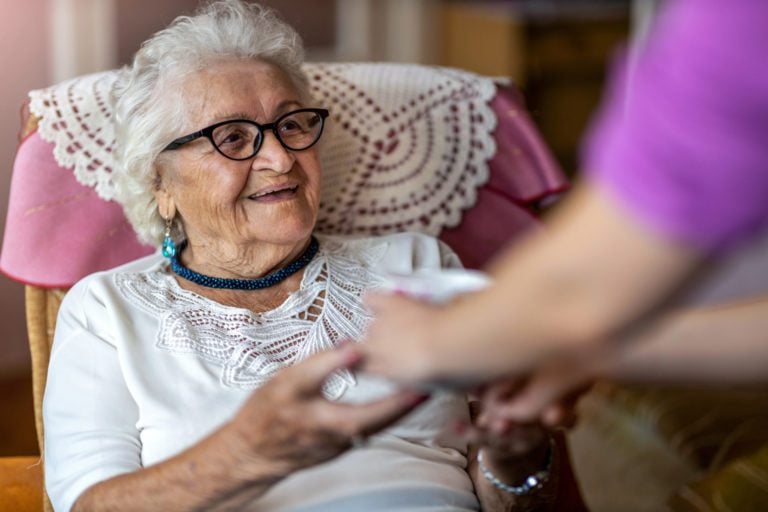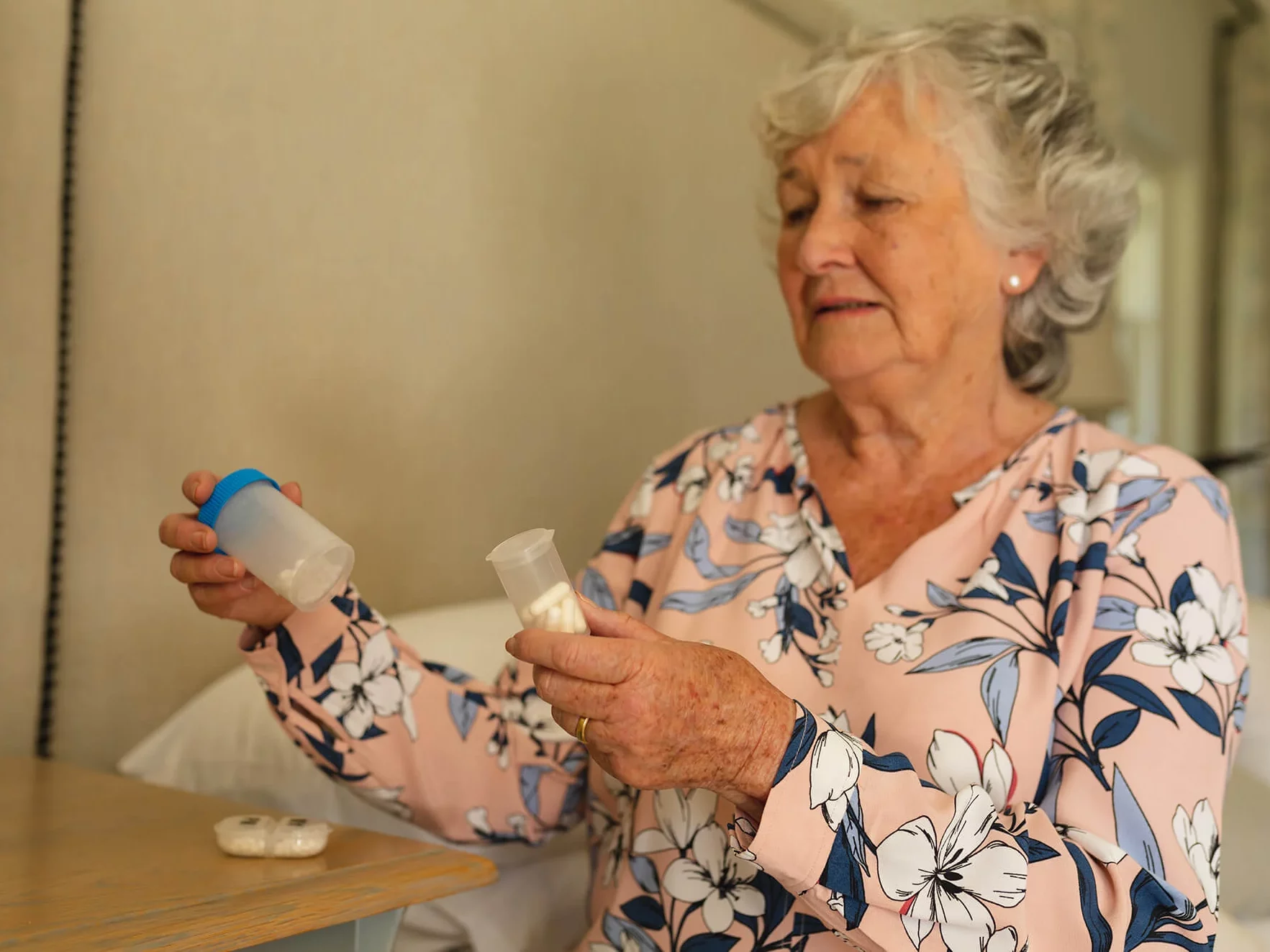What is palliative care and how much does it cost?
Tags
Paying for care
Palliative care, sometimes called ‘end-of-life’ care, is designed to improve comfort and quality of life for people with life-limiting conditions. While the emotional and medical benefits are well understood, the cost of palliative care — and who pays for it — can be less clear. In this guide, we explain how much palliative care costs in different settings and explore the funding options available in the UK, including NHS support and private care at home.
How much is palliative care?
Hospice care
Hospice care is free; however, whether you stay in the hospice depends on your situation.
Hospices provide a range of services for older adults, but it will only be suitable for some. Some people stay in a hospice for short periods of in-patient care or nursing before returning home, and others will move into a hospice in the months or weeks before death.
Some hospices offer outpatient palliative services, such as psychological support and occupational therapy. To find out whether hospice care is right for you or your loved one, it’s best to start a conversation with your GP.
Care home
Many care homes and nursing homes offer palliative care services too. Staff can provide round-the-clock care – helping to manage pain symptoms, supporting with daily tasks such as washing and eating, and provide a comfortable life for patients.
Care homes generally cost anywhere between £700 – £2,000 a week. However, how much palliative care costs in a care home will depend on your level or complexity of need and where you live in the UK.
Home-based palliative care
If you want to choose home-based palliative care, it’s important to weigh up whether you want to use a professional care service or want to manage care yourself with your family and loved ones.
Unpaid carers need to carefully consider the decision to manage care, as if it makes financial sense initially, there will still be a range of expenses, such as transportation costs, holistic treatments, purchasing care-related items and mobility equipment.
Taking on the care of a loved one can also take an emotional and physical toll, often outweighing the financial benefits.
Elder can provide live-in care support for those who require palliative care. Our matching process ensures that the carer is the right person for the job and takes into account various things, such as specific conditions and personality.
This ensures they can provide personalised care and companionship for both the person receiving care and their medical team, as well as friends and family.
Generally, live-in care fees start at around £1,000 to £1,800 per week but can be as much as £2,000 per week – it all depends on how much care and support you need.
Palliative care with Elder
At Elder, our palliative live-in care is all about putting you and your family in control. We understand care can feel expensive, but our packages make the daily costs of live-in care as affordable as possible by ensuring your family only pays for the support you actually need.
Our pricing is tailored to the care needs of the individual – so to receive your personalised quote, give our friendly team a call.
- No joining fee or unexpected costs
- No surcharges on Bank Holidays or weekends
- A one-week trial period, to see if care works for you and your family
- No additional fee if you need to request a new carer
We’re not going to lock you into any long contracts. If your loved one’s care needs change, you’re able to leave with two weeks’ notice.

How to pay for palliative care
Something people may not want to think about is how they’re going to afford the average cost of palliative care. However, it’s important to understand the options available to you. In many cases, funding is available through the NHS continuing healthcare. For those nearing the end of their life, there is a fast-track service.
Unfortunately, having a terminal illness or condition won’t automatically qualify you for continuing healthcare funding. The severity of illness and your medical care needs will be assessed by a multidisciplinary team, usually made up of at least one professional from a healthcare background and one from a social care background. The assessment will look at how your health impacts the way you live your life, and how often you need the support of someone else.
For those living with dementia, NHS continuing healthcare isn’t always guaranteed, however funding can also be sought through a Local Authority or funding privately.
Care needs assessment
It doesn’t matter who you are, or how much money you have. If you think you need help, you should turn to your local council for help with the cost of care. This starts with them talking through your daily life to an idea of the support you need. This process is called care needs assessment.
This assessment has the power to transform the care you receive because it clearly lays out for you exactly what care and support you need and why. It then goes on to recommend all the different options available so you can be cared for in the way that’s best for you.
Most councils will ask you to request an assessment either by telephone, in writing, or online. The first thing to do is visit your council’s website to confirm their exact application process.
Ignore any advice you’re given which states that you should first complete a financial assessment before your care needs assessment. The Care Act 2014 clearly states that everyone has a right to a care needs assessment. Don’t let anyone persuade you otherwise.
Financial assessment
The financial assessment is what the council uses to determine whether you’re responsible for paying for your own care.
The financial assessment and the care needs assessment go hand in hand. First, the care needs assessment determines what your needs are, and then the financial assessment determines how much caring for your needs will cost and who is going to pay for it.
Sometimes known as the ‘means test’ it’s incredibly important, but it’s often poorly understood. Just trying to understand what the financial assessment is and how it works can be challenging enough, let alone trying to understand how it all applies to your own case specifically. We want to change that. In this guide to local authority funding, we’ve broken it down step by step, so you know how it works and exactly what you’re entitled to.
It’s really important to remember that you shouldn’t apply for a financial assessment before you have undergone a care needs assessment. The needs assessment should be completely impartial – so it’s best to ensure that ‘who is paying for what?’ doesn’t affect the outcome.
When you’ve confirmed your care needs assessment with the council, you can ask them directly how to apply for the financial assessment too. If you’ve already had a care needs assessment, but haven’t arranged a financial assessment, then get back in touch with your council to request it.
Learn more about paying for care
We know your money matters. Take a look at more Elder guides on care costs and funding below.